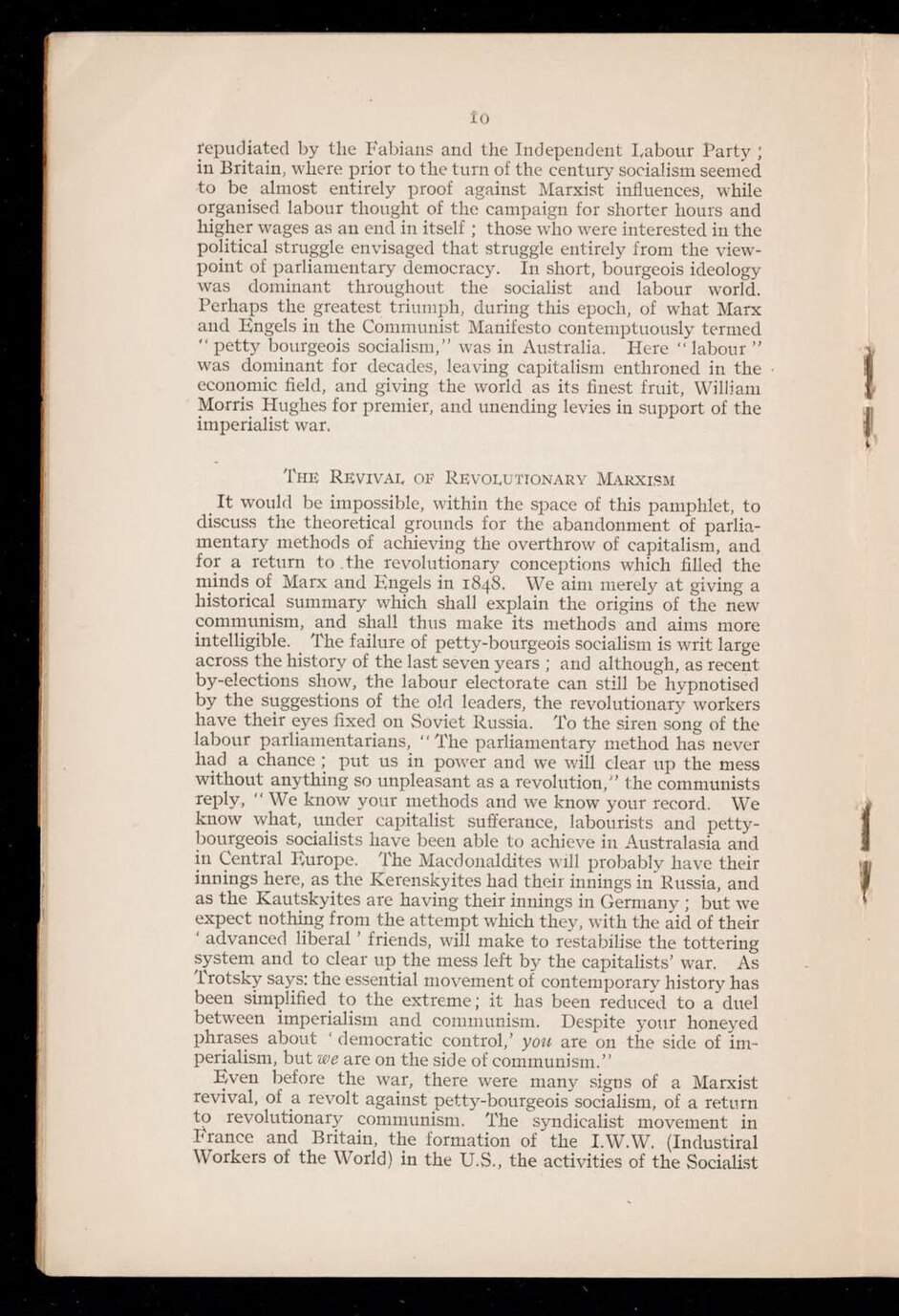10
repudiated by the Fabians and the Independent Labour Party; in Britain, where prior to the turn of the century socialism seemed to be almost entirely proof against Marxist influences, while organised labour thought of the campaign for shorter hours and higher wages as an end in itself; those who were interested in the political struggle envisaged that struggle entirely from the viewpoint of parliamentary democracy. In short, bourgeois ideology was dominant throughout the socialist and labour world. Perhaps the greatest triumph, during this epoch, of what Marx and Engels in the Communist Manifesto contemptuously termed "petty bourgeois socialism," was in Australia. Here "labour" was dominant for decades, leaving capitalism enthroned in the economic field, and giving the world as its finest fruit, William Morris Hughes for premier, and unending levies in support of the imperialist war.
The Revival of Revolutionary Marxism
It would be impossible, within the space of this pamphlet, to discuss the theoretical grounds for the abandonment of parliamentary methods of achieving the overthrow of capitalism, and for a return to .the revolutionary conceptions which filled the minds of Marx and Engels in 1848. We aim merely at giving a historical summary which shall explain the origins of the new communism, and shall thus make its methods and aims more intelligible. The failure of petty-bourgeois socialism is writ large across the history of the last seven years; and although, as recent by-elections show, the labour electorate can still be hypnotised by the suggestions of the old leaders, the revolutionary workers have their eyes fixed on Soviet Russia. To the siren song of the labour parliamentarians, "The parliamentary method has never had a chance; put us in power and we will clear up the mess without anything so unpleasant as a revolution," the communists reply, "We know your methods and we know your record. We know what, under capitalist sufferance, labourists and petty-bourgeois socialists have been able to achieve in Australasia and in Central Europe. The Macdonaldites will probably have their innings here, as the Kerenskyites had their innings in"Russia, and as the Kautskyites are having their innings in Germany; but we expect nothing from the attempt which they, with the aid of their 'advanced liberal' friends, will make to restabilise the tottering system and to clear up the mess left by the capitalists' war. As Trotsky says: the essential movement of contemporary history has been simplified, to the extreme; it has been reduced to a duel between imperialism and communism. Despite your honeyed phrases about 'democratic control,' you are on the side of imperialism, but we are on the side of communism."
Even before the war, there were many signs of a Marxist revival, of a revolt against petty-bourgeois socialism, of a return to revolutionary communism. The syndicalist movement in France and Britain, the formation of the I.W.W. (Industiral Workers of the World) in the U.S., the activities of the Socialist
